Is vaccinating your indoor cat necessary? Vaccines remain important to maintaining your cat’s overall health, despite the common misconception that indoor cats don’t need vaccinations since they’re less likely to encounter other cats or disease-carrying animals.
Don’t assume that your cat doesn’t need at least some vaccines just because he doesn’t go outside. Your cat doesn’t need to go outside to catch fleas, and an indoor cat can still get heartworm disease from a mosquito that finds its way inside your warm home.
The good news is indoor cats require fewer vaccines than outdoor cats because they are at a lower risk of many communicable diseases that can affect felines. The bad news? There’s no easy answer for which vaccines an indoor cat does and does not need.
When deciding which vaccines to give your indoor cat, you should consider their general health and overall risk, including whether they may escape, need to stay at a boarding facility while you travel, or even go to a groomer.
[amazon bestseller=”grooming for cats”]
Here is what you should know about keeping your indoor cat safe with vaccinations, including which vaccines indoor cats need and which you can skip altogether.
What Vaccines Do Indoor Cats Need?
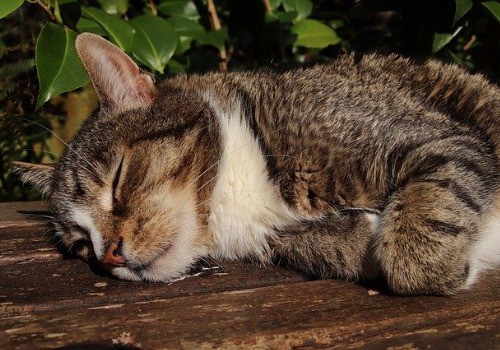
According to the American Association of Feline Practitioners Vaccination Advisory Panel, indoor cats should always stay up-to-date on core vaccines. Some of these vaccines are more important than others, especially if your cat has a history of escaping the house to interact with other cats outdoors.
At the very least, it’s important for kittens to receive a complete series of vaccines, which should be followed by a one-year booster, to guard against the following:
- rabies
- feline distemper (formerly feline panleukopenia virus)
- feline herpesvirus
- feline calicivirus
- feline leukemia
Even if your cat remains indoors with limited outside contact, the AAFP recommends continuing boosters for panleukopenia, feline herpesvirus, and calicivirus every 3 years because these diseases can spread even without direct cat-to-cat contact.
1. Rabies Vaccine
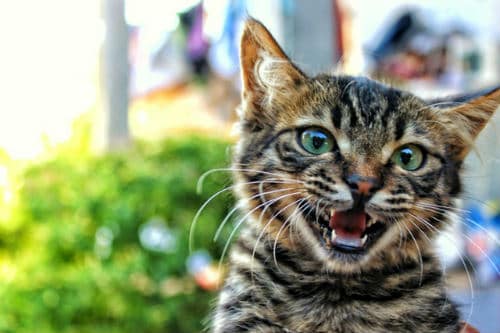
Rabies is a deadly virus that can be spread through the bite of an infected animal or an infected animal’s saliva in an open wound. Bats, foxes, coyotes, raccoons, and skunks are all common carriers of rabies. If an indoor cat escapes, it’s most likely to get rabies from a bat, especially if the cat hunts and bites the bat. Rabies isn’t just dangerous to your cat; you can catch rabies from your pet if they bite you or even lick an open wound on your body.
Your indoor cat is at a very low risk of contracting rabies, but your local jurisdiction may require a current rabies vaccine certification. Be sure to check with your local authorities for such requirements.
2. FVRCP Vaccine
The FVRCP vaccine is important for all cats, including indoor cats, because it protects against three airborne viruses that spread without cat-to-cat contact. Kittens should receive this shot at 6-8 weeks because they are vulnerable to calicivirus and distemper. Most vets recommend adult cats receive an annual FVRCP booster shot, while others recommend the booster shot every 3 years.
[amazon bestseller=”cat food”]
Discuss your concerns with your vet. To be safe, a 1-year booster shot is a wise choice, but a 3-year shot may be acceptable if your cat is low-risk.
What Are the Most Common Viruses?
Feline Distemper (Formerly Feline Panleukopenia Virus)

Feline distemper is a very contagious and dangerous virus that can cause diarrhea, appetite loss, vomiting, fever, and even death in cats, especially kittens. This virus is similar to canine parvovirus and is very stable and opportunistic. Many cats pick up distemper in a shelter, kennel, or even at the groomer.
Indoor cats are at risk of feline distemper and may become sick if they aren’t vaccinated. The virus can survive on indoor surfaces for more than a year, even at freezing temperatures. It’s even possible for humans to inadvertently carry the feline distemper virus home and accidentally give it to your indoor cat.
Virtually every cat comes in contact with this widespread virus at some point through the secretions of infected animals or from someone who handled an infected cat. If you hold a friend’s cat or pet a stray outside, you increase the odds of carrying a distemper home to your indoor cat.
Feline Herpesvirus
Also known as viral rhinotracheitis or FHV, this virus can cause severe upper respiratory infections, eye problems, and lethargy. An indoor cat can be infected with FHV by coming into contact with contaminated objects.
Rhinotracheitis is a complication of feline herpesvirus and can cause various symptoms, including herpes ulcers in the eyes, dehydration, and starvation. The infection is most common in physically or emotionally stressed cats with weakened immune systems. This is why it’s so common in shelters and kennels. Cats that are purebred or longhaired are also at a higher risk of infection.
Feline Calicivirus (FCV)
This contagious disease is one of the primary causes of upper respiratory infections in cats, and it can cause eye problems, sneezing, lethargy, sores in the mouth, lameness, and pneumonia. A more dangerous strain can also cause organ inflammation and death. FCV does not require direct cat-to-cat contact; it can survive up to a month in the environment and on objects.
[amazon bestseller=”cat probiotics”]
Vaccines Not Needed for Indoor Cats
The following vaccines aren’t strictly required for an indoor cat that can’t escape, is otherwise healthy, and has no exposure to other cats. Keep in mind you should reassess your cat’s need for these vaccines if you decide to let your cat outside, expose your cat to other pets, or your cat needs to stay in a kennel.
Bordetella or Kennel Cough

This common bacterial infection is a leading cause of respiratory infections, and it affects cats and dogs. Bordetella is known as kennel cough because it’s very common in areas with many cats, including shelters and homes with several cats.
Chlamydia Felis
This bacterial infection causes upper respiratory infections and conjunctivitis in cats. It may be recommended if you have multiple cats.
Feline Leukemia Virus (FeLV)
FeLV is the most common cause of viral deaths in cats, and it can be spread through the milk, feces, urine, saliva, and nasal secretions of infected cats. About half of all cats with FeLV die from the disease within two years because it can cause anemia, cancer, and immune system suppression.
Feline Infectious Peritonitis (FIP)
FIP is a fatal viral infection. There isn’t enough evidence that FIP can spread quickly between cats, and studies show that FIP vaccination is not very effective. This vaccine is not recommended for indoor or outdoor cats.
Consider the Risk of Escape or a Lifestyle Change
While your indoor cat may be at no risk of getting FeLV or Bordetella right now, it’s still a good idea to consider the future. What if your cat accidentally gets out or ends up in an animal shelter? What if your cat was already exposed to the feline herpes virus as a kitten, or you decide to let your cat roam outdoors in the future? These are important questions to ask yourself before you completely write off the idea of most vaccines.
Here are 5 Reasons a Full Vaccination May Be Recommended
1. Your Cat May Have a Latent Disease
Even if your cat has spent its entire adult life in your home, don’t overlook the possibility that they have a latent disease. Many cats are exposed to the feline herpes virus (FHV) when they are young. If you adopted your cat, this virus can be contracted in utero or from a shelter. Vaccination won’t stop FHV but keeps the virus under control and prevents flare-ups. If your cat already has the latent virus, staying up-to-date on vaccinations can prevent flare-ups that can lead to eye problems and severe respiratory problems.
2. Lifestyle Changes May Happen Later
Are you positive your cat will remain indoors for their entire life? You never know what may happen in the future, as moving to a new home, divorce, or death can also affect your cat’s lifestyle. You may move to a new area where you feel comfortable letting your cat explore outdoors, for example, or your cat may one day be living with another family that lets her outside. Stay current on vaccinations can keep your cat safe if its lifestyle changes.
3. Your Cat May Escape
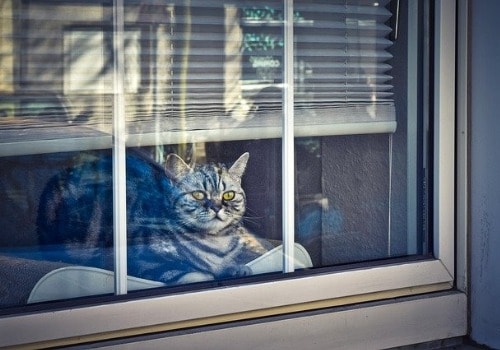
Some indoor cats have no interest in going outside, but others will happily take advantage of an opportunity to slip outdoors. Cats are curious, and a visitor or service technician who leaves the door open may make it easy for your cat to escape. Even a few hours outside can be enough time for your cat to encounter a rabid animal, a stray cat with a disease, or be bitten by a mosquito or tick.
[amazon bestseller=”cat mosquito repellent”]
If your cat is picked up by animal control, it may spend at least a night in an animal shelter. Even vaccinations do not guarantee that your cat won’t catch anything in a shelter, but they do reduce the risk. Stress and crowded shelters are the perfect recipes for making your cat more susceptible to catching something before you pick them up.
4. You May Need to Board Your Cat
What happens if you need to go on a trip or stay in a hospital, but there’s no one to take care of your cat? If your cat needs to be boarded while you’re away, you may be required to provide proof of vaccination. This protects all animals in the boarding facility, including your cat. Pets are as likely to catch something while they’re boarded as they are in an animal shelter.
5. You Take Your Cat to the Groomer
If your cat goes to a groomer, it’s worth considering additional vaccinations. The Bordetella vaccine is often recommended for cats that go to groomers or kennels because the infection can spread quickly if multiple cats are in an enclosed area.
"In ancient times cats were worshipped as gods; they have not forgotten this."
-- Terry Pratchett


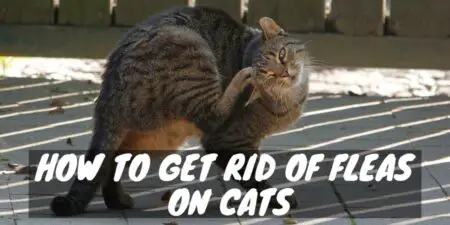

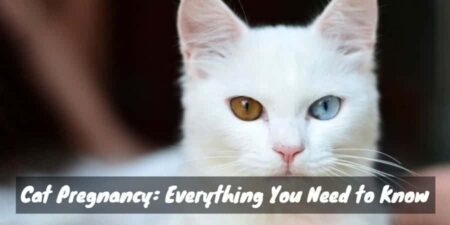
Good article with good information.
Cats are amazing! We should be doing everything possible to protect them. Thank you for this article.